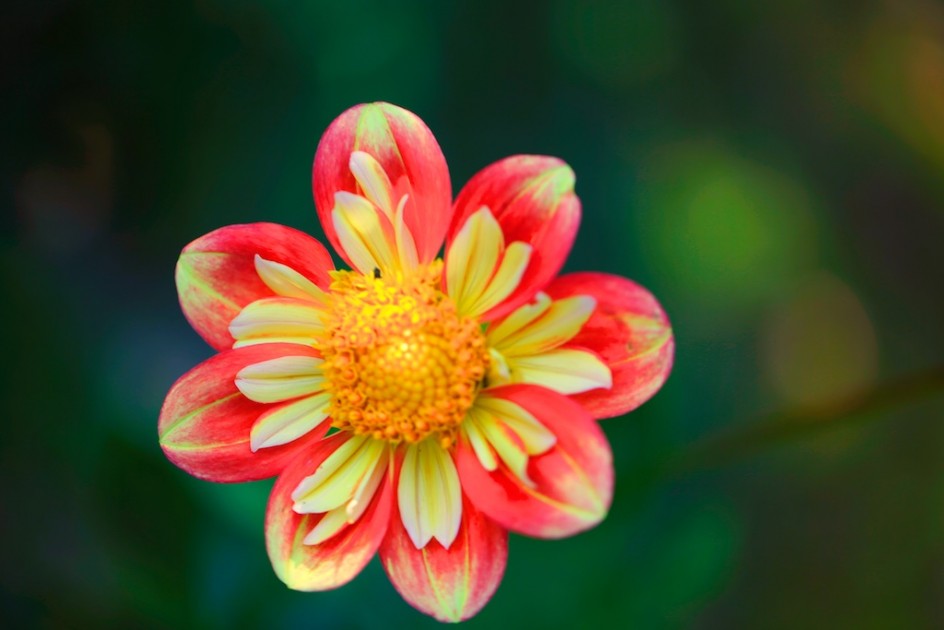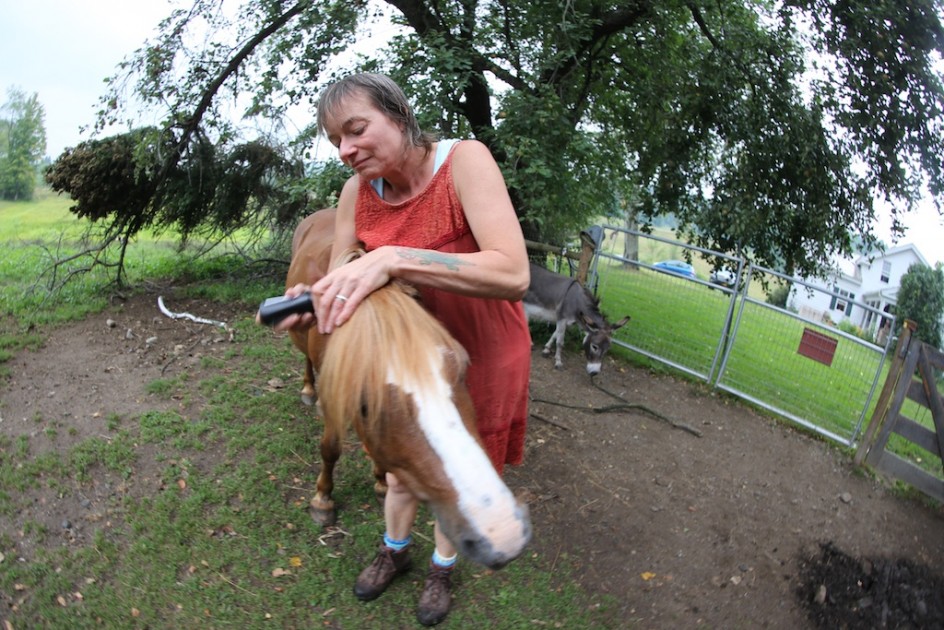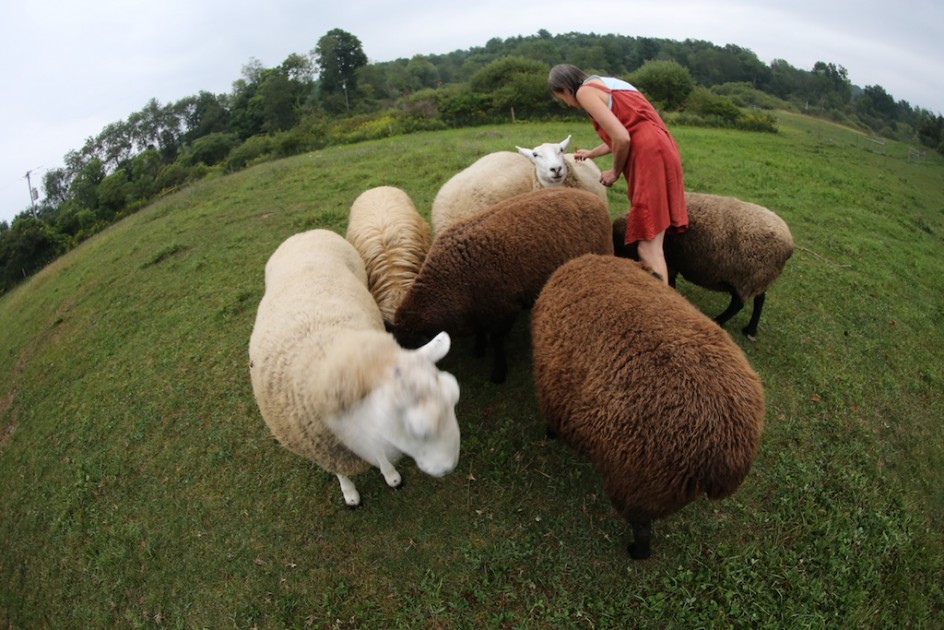In the summer, flies and bugs get into the ears of equines, they cause painful bites that quickly get covered in scabs – horseflies are about the nastiest form of life I’ve seen up here. We got some ointment for the pony, and she happily submitted to Maria’s tender care this morning. Chloe is a sweet girl, she was happy to let Maria do what needed to be done.
Month: August 2015
Measuring Wool
One of the occasional chores on the farm is measuring wool for the spinners and cleaners. We take our wool to Vermont and the mill suggests it be at least three inches long to make a lot of yarn. So Maria was out with the sheep poking them with pencils in their backs. They took it well, even the notoriously grumpy Zelda, who would knock me down as soon as look at me. Five of the sheep have long wool, two don’t, we are trying to figure out when to get them shorn again and whether we should do it once or twice a year. They were good about it, as long as you get them grazing.
Loving Dogs: When Grief Becomes Something Else…
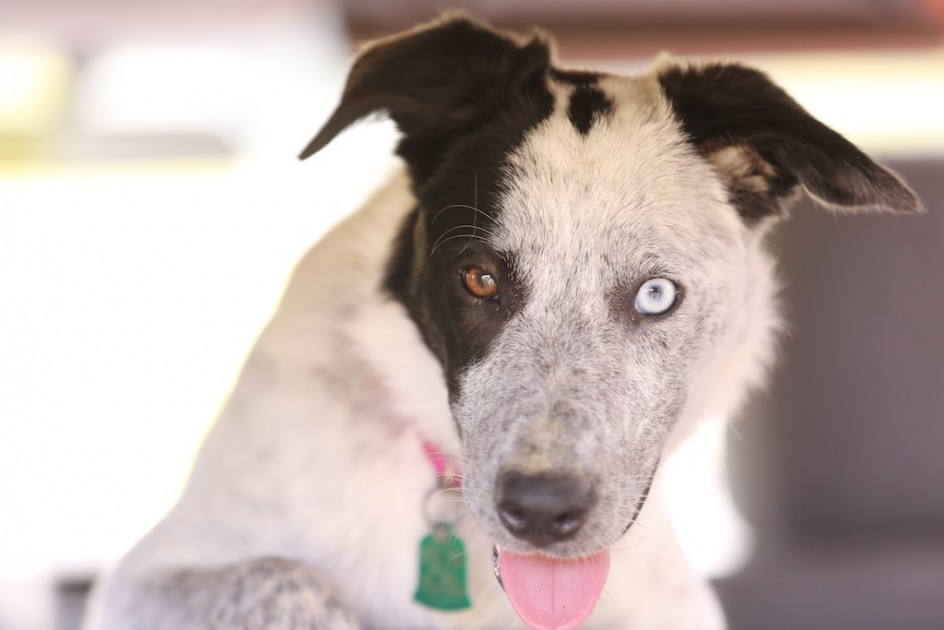
Several years ago, I wrote a book called Going Home: Finding Peace When Pets Die. The book was an effort on my part to try to help people deal with a growing problem, now considered to be a mental health crisis by many psychologists and health professionals: extreme grieving for animals.
The book was meant to be useful, and also a cautionary tale. Animals like dogs once lived in the periphery of our lives, they have moved to the center of our emotional existence. Hundreds of thousands of people are deeply enmeshed in the animal rescue culture, which often travels far and wide in search of animals to save. There is no such organization for human beings.
Many more believe that animals are entitled to the same rights and position in the world as people, they are challenging the very idea that animals should ever work with people, entertain or amuse them, or even be owned by them.
As pets have moved to the center of our emotional lives, and are increasingly seen as children, best friends, intimate companions, the sources of unconditional love in a tense and distracted culture, grieving for animals has sometimes become something else: a painful form of mental illness. The depth and intensity of animal grieving has escalated beyond the imagination of animal lovers or shrinks, even a decade ago.
Ever since I wrote the book, I have been getting messages from people who read my book. Lots of them just want to tell me their dogs has died, that is often sweet and touching.
Many people tell me the book was helpful, many seem not to have it or grasped it’s message. We see what we need to see and what we want to see, just as we get the dogs we want and need to get. People report grieving and suffering for years, sometimes unable to work, have relationships, or function normally. They seem to almost vanish in their own pain, unable to see what is apparent to many others, they need help.
Yesterday, Regina (not her real name) sent me the kind of message I am now used to receiving. She was desperate, begging me to contact her daughter – she enclosed a phone and an e-mail address. Her daughter, a special needs teacher in a local school, was devastated by the death of her border collie, who lived to be eleven. She was do distraught her mother was frantic, she recounted the horrific tale of this poor dog’s long suffering illness and death, her diabetes, her blindness, her medications, her incontinence and pain, the frightful cost of treating her.
She and her daughter spent months sitting by the dog’s side as the dog worsened strained to survive, often in great pain. “She didn’t eat, gave up on treats, tried desperately to hide…She had death breath, lost weight, developed heart murmurs, couldn’t sleep or walk long distances.” They spent many thousands of dollars on the dog’s care, saw it as a measure of love.
They ignored the pleas of their vet – I heard this from every vet while researching the book – to put the dog down and ease her suffering. When the dog died, they refused to permit her body to go in a freezer even for a day and drove many miles to a crematorium. “We are all suffering so greatly,” wrote the mother. “I don’t know how to help her anymore. She is so sad.” Her daughter, she said, is a special needs teacher, “she is in a terrible void now and really needs your help.”
It was a painful for message for me to read, not only because of the daughter’s suffering, but even more so, because of the dog’s suffering. We talk a lot about animals who are being abused in America, we often miss some of the worst abuse – animals whose lives are so unnaturally prolonged, who suffer endless medications and surgeries and pain because the people who say they love them cannot let them go. No animal rights group is picketing them, they hurt animals all the time.
Almost any vet will tell you this is the worse thing that they see, animals who are kept alive beyond reason and whose people grieve beyond anything that is rational or appropriate. They often suffer debilitating guilt, sleeplessness, and depression.
The mother told me proudly that she and her daughter went deeply into debt to prolong their dog’s life, and her daughter was wracked with guilt and grief that she began hearing voices in theaters and at work. Strangers reassuring her, telling her she did the best she could, the dog herself appearing over and over again to reassure her, tell her she still loved her, that she forgave her for letting her die.
I know what she wanted of me, and I knew she would not like what she got back.
I wish I could tell you that this kind of letter is rare, but it is not, I get one or two like it almost every day. I wish this mother and daughter had actually read my book rather than simple used it as a pretext to draw me into this sad drama.
I wrote back to the mother. I told her I was sorry for her troubles. I asked her why her daughter had not contacted me herself, if she wanted my help. I told her I was not a therapist, and in all honesty, I felt she needed a therapist. Sometimes, I said, grief is something else. Sometimes it is an illness that needs treatment. I sent her a link that would help her find a professional in her town to talk to.
She wrote back, I could have predicted it word for word. She was shocked, disappointed that I had not called her daughter, she couldn’t imagine why I would suggest a therapist. I will not, of course, write again. She expected sympathy and understanding. I gave it my shot, I know by now that isn’t likely to work, I had to try. I wish she had read my book.
When I wrote Going Home, I interviewed a score of psychologists and psychiatrists, every one said they had seen this growing problem of animal grieving. In these cases, grief becomes something else, they said. It becomes a form of mental illness. Such excessive grieving, they told me, is not about the dog. It is about loss and suffering in the lives of the human, projected onto our dogs, as so many emotions and feelings are – my dog was abused, my dog won’t let me go out, my dog is jealous of the dogs I meet on the street, I will never get another dog because I loved the last one so much, my dog is the only living thing that understands me.
I devoted whole chapters to grieving in the book, I was careful to make sure that people knew there was help if they needed it. Most people who grieve for animals do not need help. Many – more and more – do. Increasingly, we look at animals like dogs (and carriage horses) only through the prism of abuse and rescue. In that contexts, death and loss can become intense. Saving something is different from adopting something, rescuing something is different from buying something.
In our fractious and tense world, we have no place to put our sad human stuff, dogs are blank canvasses, we can paint anything we want on them. We can make them out to be anything we wish. We can take all of our human shit and pour it into them, that’s why more than 350,000 dogs in America are now on anti-depressants and anti-anxiety medications.
How sad that animals like carriage horses and ponies and dogs need to be saved from the very people who claim to love them the most.
Grief is an important, very normal and valuable human emotion. We need it and we are entitled to it when we lose a person or animal that we love. We each have to do it in our own way. But when people are unaware of their own inner selves, grief can become something else, some awful and enabling thing, as it did with this mother and her daughter, caught together in their own emotional snare. I could tell from her message that she was getting her sympathy and support, rather than the concern she needed. I hope I put a voice into her head, I hope her daughter gets help instead of enabling.
A special needs teacher, I thought, of all people, ought to be able to grieve in an appropriate way, move on, and do the most healing thing there is, get another dog, there are so many in need, if you loved the one, you will love another. What, I wondered, did this mother want me to do for her daughter? Why wasn’t she getting help in the right place?
We all grieve in our own way, there is no one way to grieve. But again and again, we see that we are losing perspective when it comes to loving animals. And as often happens, it was this poor sick dog who paid. And paid.
I love my dogs very much, I am sorry and sad when they die. As soon as it seems right, I get another one, and love that one just as much, if not more. I tend to do it soon, because it is the most healing thing to do, for those that actually want to feel better rather than cling to sadness and self-pity.
That is the wonder and glory of dogs. We can actually do it again. And again. Since they don’t live very long, that is part of the contract. After all, what did I expect?
It is wonderful while it lasts. We can do it again. When people tell me they loved their dog or cat, they can’t think of getting another, I say a prayer for the millions of dogs and cats, many of them languishing in crates in life-time no-kill shelters, one of the cruelest things I can imagine doing to an animal we say we love.
For me, a dog ought never to be such a misery, in life or memory. They are such a gift. There is nothing loving about keeping an animal alive in pain for many months and then using the animal as an excuse to keep oneself in pain for longer.
The death of a dog is not a reason for me to suffer eternally, and without boundary. It is not a reason for me to lose perspective on what a dog or animal means to us. When I think of that Going Home – I wonder if the people messaging me will ever read it — I think of the wise little girl who loved her chicken so much she brought it to school and marched with it in town parades.
When the chicken died, her mother – she had a different kind of mother – asked her if she was sad.
Yes, said the girl, it was sad. But it was also exciting. She loved the chicken so much, she told her mother, she couldn’t wait to love another one.
Bridget At O’Hearn’s Says Goodbye. Honoring The Art Of The Pharmacy
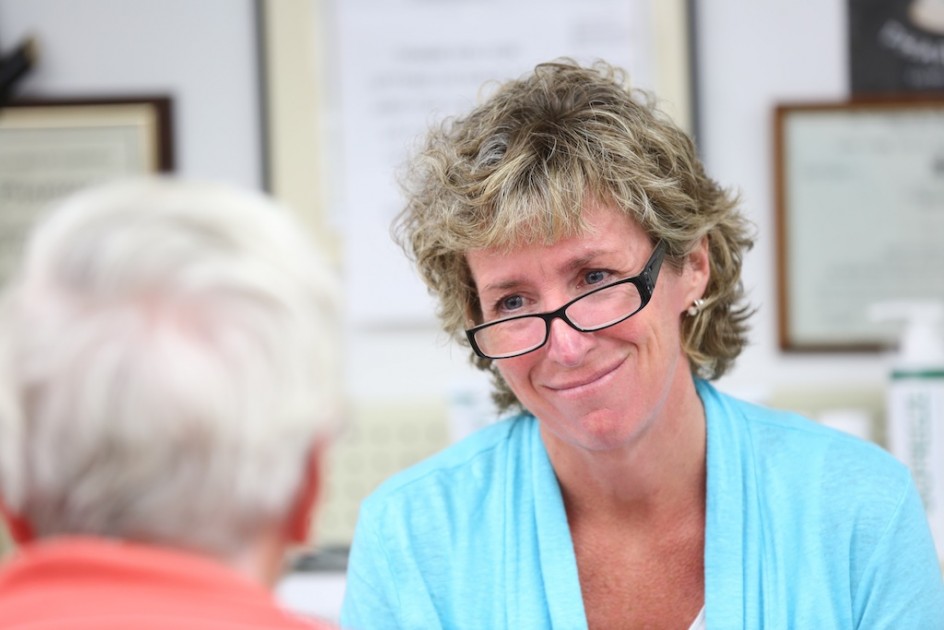
The phone rang at 3 p.m., Bridget Rowan tends to phone rather than text or e-mail. Better yet, she likes to look her customers in the eye and talk to them. It is part of what she calls the art of the pharmacist.
“Jon, this is Bridget,” she said. “I’m calling with good or bad news, depending on your point of view. I’m closing the pharmacy. Our last day is September 2nd.” I was sorry to hear this news, I can’t say I was shocked by it. Bridget’s world, the world of the independent pharmacy, is vanishing rapidly. There are only two independent pharmacies left in our big county, soon there will be none. Her customer’s prescriptions have already been transferred to the Rite-Aid a half-mile away.
It is a familiar story to many people, I was well aware the day would come.
There are not many independent pharmacies left anywhere, small pharmacies have a hard time dealing with chain competitors, declining reimbursements from insurance companies, suffocating government regulations, greedy pharmaceutical companies, mail order drugs online, staggering amounts of paperwork, computing issues and communications challenges. It’s just too much for a small pharmacy to handle, the Darwinian, mammoth corporate/ government health care system discriminates brutally against the small.
Bridget often talks to me about the art of the pharmacist, her family opened O’Hearn’s Pharmacy nearly a century ago, it is a much loved and appreciated place. She took it over from her father, who retired.
The art of the pharmacist is mostly gone. Pharmacists were once health care counselors, part-time doctors, friends and advisers. In the digital age, pharmacists have become communications managers, constantly trying to reach arrogant and distant insurance companies, sorting through the maze of government regulations, struggling to communicate with busy and overwhelmed doctors, competing with the prices on the Internet, trying to explain to frightened and puzzled customers why they have to pay so much for their medications.
In the modern health care world, it is impossible to talk to insurance companies or understand health plans, harder to reach government regulators, difficult to talk to doctors. The pharmacist is on the front line, they are the only ones out there, everyone can reach them and talk to them, they have fewer and fewer answers. People say they love the personal service, but they love going on the Internet and getting stuff cheaper even more.
The Tango Dahlia
